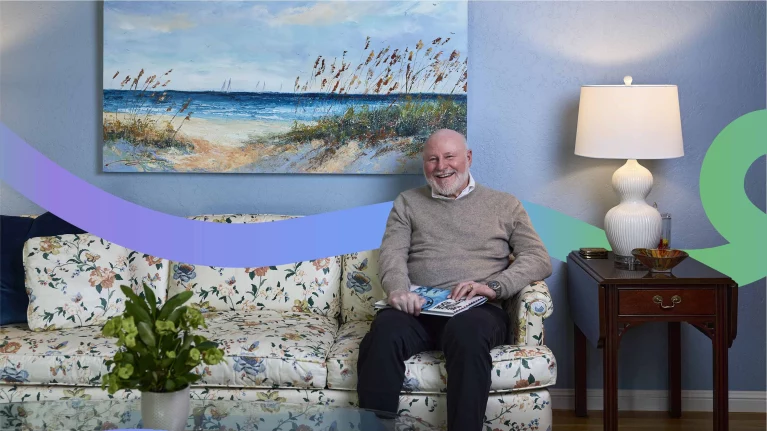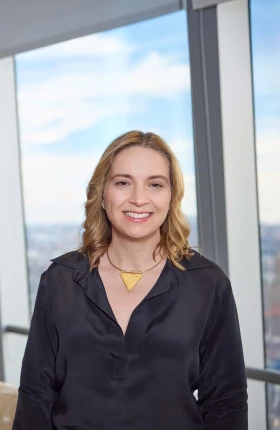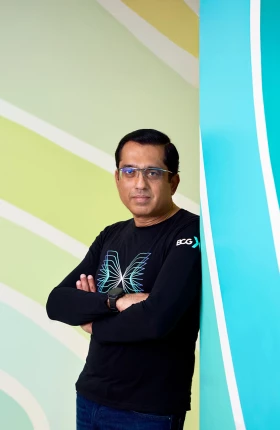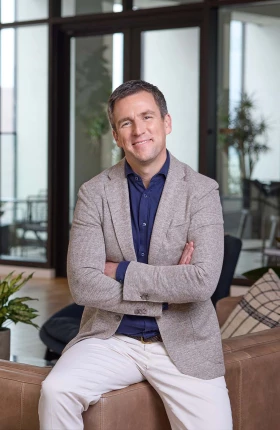Mohammed describes how mentorship, strategic clarity, and bold goals underpin his leadership philosophy as president of Global Servicing at American Express and reveals the three key traits he sees in outstanding leaders.
Mohammed Badi had obtained his PhD in electrical engineering and worked as a postdoc in a lab for six months when he joined BCG. “I felt that I was a good engineer, but not a great one, and that I might have a more successful career in business,” he recalls.
Badi’s self-assessment seems to have been quite perceptive, at least regarding his business acumen. After a 14-year career at BCG where he rose to the position of senior partner and managing director with a global leadership role in Payments & Transaction Banking, Badi left BCG for American Express in 2018 and is currently President of the company’s Global Servicing organization.
But the transition from the world of science to the world of business wasn’t necessarily easy for Badi. “At the beginning, I was struggling with the consultant role,” he says. “As in any supportive environment, I found that it’s the people who take you under their wing to show you how things are done that help make you successful. That’s what I had at BCG—a couple of people who showed me the way to build a core set of skills involving communication, analytics, and navigating complex client situations. Those skills have underpinned my accomplishments at BCG and beyond.”

Three Pillars of Exceptional Leadership
Badi built his consulting career working with leaders he admired at BCG and became a BCG leader himself. Since joining American Express, he has held multiple leadership positions, including nearly three years as the company’s first chief strategy officer and over four years as president of Global Network Services, before stepping into his current role earlier this year.
Based on these experiences, Badi says he believes exceptional leaders share at least three key characteristics:
- They invest in the development of their team members. “Most people want to improve their performance and advance in their careers,” says Badi. “Exceptional leaders demonstrate a commitment to helping their team members get better at doing their jobs.”
- They define and communicate business priorities. “You need to say this is where we’re going, what we’re looking to achieve, and how we’re going to do it,” notes Badi. “The best way for leaders to help team members understand their vision is by employing a super direct and transparent communication style.”
- They set and achieve bold goals. In Badi’s experience, people want to work for aspirational leaders. “People want to be on a team that is trying to do big things and win,” explains Badi. “Great leaders can attract and cultivate talent by pushing teams to achieve big, bold objectives.”
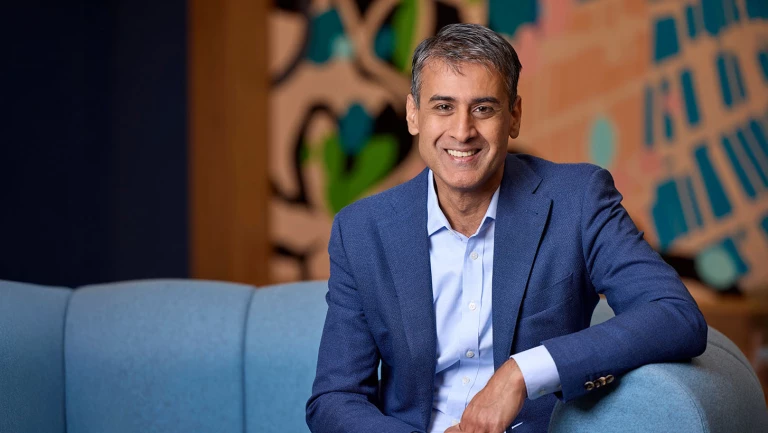
Leading at the Dawn of the AI Age
The Global Servicing organization at American Express includes almost half the people in the company—some 30,000 employees who handle frontline and back-office operations. Essentially, Badi’s group oversees all Card, travel, and lifestyle customer service functions for the company’s global consumer, banking, merchant, and commercial customers, as well as key enablement functions that power products and services.
In his role as president of Global Servicing, Badi aims to protect the company’s 175-year legacy of trust, service, and security. He does this by empowering colleagues in his organization to solve customer issues and innovate to enhance the customer experience. “Global Servicing is where the American Express brand comes to life, so I have the responsibility to maintain and strengthen our brand by improving our performance and showing that we are innovators and problem solvers,” he says. “I have the gift of working in the early days of the AI-enabled era, because servicing and operations functions are where AI technology is likely to deliver a lot of customer value.”
That’s not to say that Badi thinks it will be easy to extract value from AI. “Right now, we’re in the middle of figuring out how to successfully integrate new AI technology and tools into servicing and operations,” he says. “This includes dealing with hallucinations and making sure that the AI-enabled service we deliver to customers is just as good or even better than what we’re providing in more traditional ways. That’s the hard part—but it’s also fun to lead this wave of innovation and change.”

Keeping an External Perspective
Even as Badi has thrived as a leader at BCG and American Express, over the years, he has made time to be an adjunct faculty member at both Stanford University and New York University. He also serves on the board of two nonprofit organizations: the Tenement Museum in New York City and the International Rescue Committee (IRC).
Badi says that putting himself in an academic environment gives him a jolt of energy by allowing him to plug into the world of faculty and students at both schools. “There’s also an element of giving back,” he says. “I’ve benefited from all the people who have mentored and taught me over the years, so I’m happy to do the same for others.”
His involvement with the Tenement Museum stretches back to a pro bono strategy project for the organization that Badi led when he was still at BCG. After helping to formulate the museum’s five-year strategy plan, Badi accepted an invitation to join the board. “The Tenement Museum’s mission is to tell the story of immigrants who came to New York, and shine a spotlight on immigrants, migrants, and refugees in the United States today,” says Badi. “As someone who immigrated to the United States myself, I believe in their mission and the power of sharing these stories.”
Badi started working with the IRC more recently and has been on their board for less than a year. “Their purpose is to support people whose lives and livelihoods have been shattered by conflict and disaster,” Badi says. “For those of us who have not been affected by conflict in this way, I believe we have a responsibility to help. I want to do my part, and I’m glad that I have the problem-solving and communication skills the organization finds helpful in support of its mission.”
Badi will be splitting his $5,000 BCG Alumni Award prize between the Tenement Museum and the IRC. “The leaders at both of these organizations are making tremendous efforts to address the challenges that our society faces today,” he says. “I think the stories they are telling and the actions they are taking to make society better are exactly what the world needs right now.”






